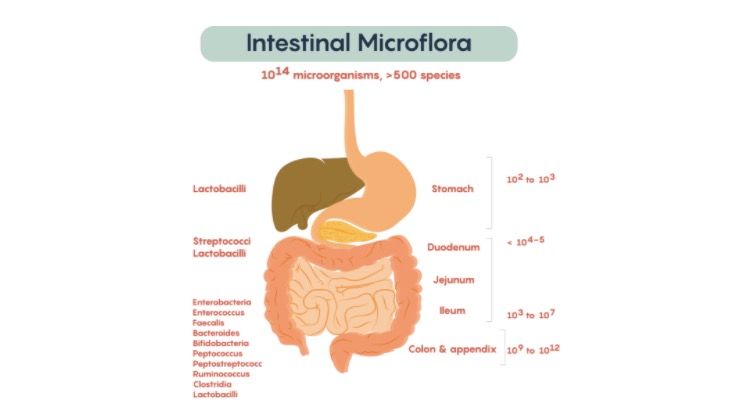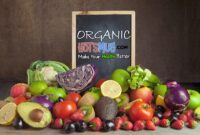The one study to alarm them all
The study by Suez et al. was published in Nature, arguably the most prestigious journal in the world. They’re renowned for only accepting high-quality publications. However, this study had major limitations and raised a huge controversy.
First, most of this study was done on mice. Rodents have a very different metabolism than humans. Extrapolating dosages is particularly difficult. There were only 2 analyses on humans.
The first human analysis was observational only. They correlated sweetener usage with multiple markers of diabetes in a different ongoing study. People that used more sweeteners also had higher rates of glucose intolerance. However, they were also fatter. Fatter people always have more symptoms of metabolic syndrome, regardless of sweetener usage, so there’s no surprise here. A later study published in Nature showed that fatter people often use more artificial sweeteners in an attempt to lose weight. So correlations between sweetener usage, bodyweight and metabolic disease are entirely to be expected and are not evidence that sweeteners cause metabolic disease. Rather, it may just be that overweight individuals are more likely to use sweeteners and more likely to have metabolic diseases.
Does aspartame influence your gut bacteria?
Aspartame is an artificial sweetener found in many diet sodas. Even though it’s produced synthetically, aspartame consists of entirely natural compounds: phenylalanine with an added methyl group and aspartic acid. These are natural amino acids that are also found in our bodies and in many foods. As a result, aspartame is digested just like dietary protein. It’s rapidly broken down to its constituent amino acids and absorbed. Nothing reaches the large colon where most of our microbiota reside and no aspartame enters our blood or organs even at very high doses. It’s thus hard to imagine how aspartame could harm our gut health. Indeed, a 2020 Canadian randomized controlled trial found no effect of aspartame consumption on the gut microbiota.
Sucralose sweeteners and the effect on gut bacteria
Sucralose, most commonly known in the form of the brand Splenda, is another artificial sweetener that’s not far off from a natural compound. It’s produced synthetically, but sucralose is merely a modified form of table sugar (sucrose), also called tri-chloro-sucrose. This modification makes sucrose unavailable to human glycosidic enzymes, so it cannot affect our blood sugar or be metabolized for energy.
In fact, the human body can’t do much with sucralose at all. We can barely digest, absorb or metabolize sucralose. Most sucralose just passes through us, out via our feces. The small part that’s absorbed is excreted via our kidneys, out into our urine, without being digested. Only about 2% of sucralose is metabolized into minor metabolites and this occurs in the body, not in the gut.
The effects of Stevia on gut bacteria
Commonly referred to as Stevia, the sweeteners are actually the steviol glucosides, namely rebaudioside A, from the leaves of the Stevia rebaudiana plant. People commonly assume natural equals safe, but mechanistically, Stevia extract is the only sweetener in this article that the gut microbiota in our colon can significantly feed on. Thus, Stevia extract can directly affect our gut health. Indeed, human and rodent research show that consuming Stevia extract can alter the concentrations of several bacteria in our gut, although the effect is minor. The hydrolysis in the gut leaves a steviol backbone, which is then absorbed from the colon and bonds with glucuronic acid before being excreted as as steviol glucuronide via our urine.
Conclusion
In contrast to media alarmism and 1 highly questionable study on saccharin, many scientific review papers and regulatory agencies agree that commonly used low-calorie sweeteners are safe for human consumption in any commonly used dosages. This includes
- the Federal Department of Agriculture (FDA),
- the European Food Safety Authority (EFSA),
- the National Cancer Institute and
- *takes a deep breath* the Joint Food and Agriculture Organization of the United Nations (FAO) and World Health Organization (WHO) Expert Committee on Food Additives (JECFA).
A 2019 review paper‘s conclusion was pretty sweet: “A few rodent studies with saccharin have reported changes in the gut microbiome, but primarily at high doses that bear no relevance to human consumption. This and other studies suggesting an effect of low/no-calorie sweeteners (LNCS) on the gut microbiota were found to show no evidence of an actual adverse effect on human health. The sum of the data provides clear evidence that changes in the diet unrelated to LNCS consumption are likely the major determinants of change in gut microbiota numbers and phyla, confirming the viewpoint supported by all the major international food safety and health regulatory authorities that LNCS are safe at currently approved levels.”
To be safe though, parents of small children and pregnant women should check their consumption against the acceptable daily intake (ADI). If you use a lot of saccharin (still drinking Cola Tab? Get with the times, yo!), you should also check your daily intake and consider switching to aspartame or sucralose. Most people think they taste better anyway and their safety track record is much clearer. You can also go with Stevia extract if you don’t mind its taste, but despite being ‘natural’, its safety track record is actually a bit worse than that of aspartame and sucralose.
Enjoy your sweeteners!




